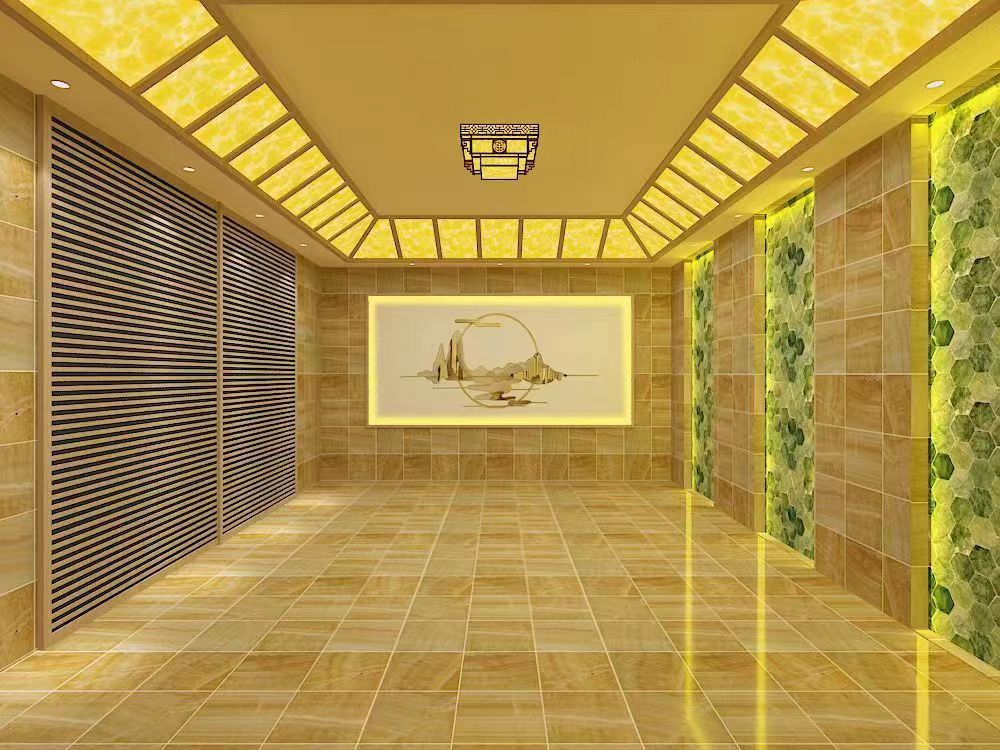
When it comes to creating or renovating a sauna, choosing the right heat - resistant tiles is crucial. Here are some key factors to consider when making your selection.
Ceramic tiles are a popular choice for saunas. They are known for their durability and ability to withstand high temperatures. High - quality ceramic tiles are made from a mixture of clay and other minerals. These materials are fired at high temperatures during the manufacturing process, which makes them more resistant to heat.
Porcelain tiles are another excellent option. They are denser than ceramic tiles and have a lower water absorption rate. This density allows them to better handle the extreme heat in a sauna without cracking or deteriorating.
Natural stone tiles, such as slate or granite, can also be used. However, it is important to ensure that the stone is suitable for high - temperature environments. Some stones may contain minerals that can expand or contract too much under heat, leading to damage. For example, marble is generally not recommended for sauna floors as it can be easily damaged by heat and moisture.
Look for tiles that have a specific temperature rating. Tiles designed for saunas should be able to withstand temperatures well above the normal operating range of a sauna, which is typically between 160 - 200°F (71 - 93°C). Some high - quality heat - resistant tiles can handle temperatures up to 400°F (204°C) or more. Make sure to check the manufacturer's specifications to ensure that the tiles you choose can handle the heat of your sauna.
The size and thickness of the tiles can also affect their heat - resistance. Larger tiles may be more prone to cracking due to thermal expansion and contraction. It is often advisable to choose smaller - sized tiles for saunas, as they can better adapt to the changes in temperature.
In terms of thickness, thicker tiles generally offer better heat - resistance. A thickness of at least 1/2 inch (1.27 cm) is recommended for sauna tiles. Thicker tiles can distribute heat more evenly and are less likely to be affected by sudden temperature changes.
The surface finish of the tiles can impact their performance in a sauna. A matte or textured finish is often preferred as it provides better traction, especially on the sauna floor. This helps to prevent slips and falls when the floor is wet from steam.
On the other hand, a glossy finish may be more difficult to clean in a sauna environment, as it can show water spots and soap scum more easily.
Invest in high - quality tiles from a reputable brand. A well - known brand is more likely to have strict quality control measures in place during the manufacturing process. This ensures that the tiles meet the necessary heat - resistance and durability standards.
You can read reviews from other sauna owners or consult with professionals in the sauna installation industry to get an idea of which brands are reliable. Additionally, check for any warranties or guarantees offered by the manufacturer, which can give you added peace of mind.

